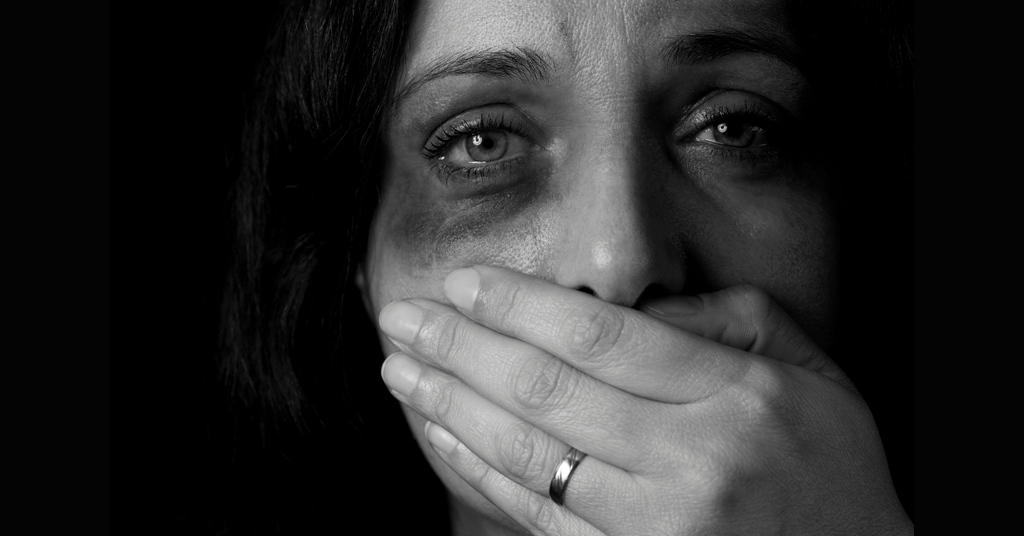Every Nine Seconds

One in every four women will experience domestic violence in her lifetime.
National Coalition against Domestic Violence

Approximately one-half of the orders obtained by women against intimate partners who physically assaulted them were violated.
More than two-thirds of the restraining orders against intimate partners who raped or stalked the victim were violated.
National Coalition against Domestic Violence
From 2016 through 2018 the number of intimate partner violence victimizations in the United States increased 42%.
Bureau of Justice Statistics

Domestic violence victimizations often go unreported.
US Department of Justice

In 2018, partner violence accounted for 20%
of all violent crime.
Morgan, R.E., & Oudekerk, B.A. (2019). Criminal victimization, 2018.
Bureau of Justice Statistics.

Women in the US are 11 times more likely to be killed with guns than women in other high-income countries.
Female intimate partners are more likely to be killed with a firearm than all other means combined.
The presence of a gun in domestic violence situations increases the risk of homicide for women by 500%.
More than half of women killed by gun violence are killed by family members or intimate partners.
National Coalition against Domestic Violence

There is more than one type of relationship abuse and, oftentimes, more than one type occurs in an abusive relationship.Domestic violence (also referred to as intimate partner violence (IPV), dating abuse, or relationship abuse) is a pattern of behaviors used by one partner to maintain power and control over another partner in an intimate relationship.
Physical Abuse
Emotional and Verbal Abuse
Sexual Abuse
Sexual Coercion
Reproductive Coercion
Financial Abuse
Digital Abuse
Stalking
A Word On False Reporting
Domestic violence is underreported, yet accusations of false reporting are used to silence women - to this day. It's called secondary victimization, when a woman's legitimate claim of abuse is written off as false. The fact is that the sensationalized cases of false reporting are actually rare. Researchers report that false reports of domestic violence occur 2% to 10% of the time - consistent with other types of crimes.
What Can I Do?
It is exceedingly difficult to know that someone you care about is being abused - and even more so to know what to do about it. It's natural to feel compelled to rescue our loved ones when we know they're in danger, but it's more complicated than that when it comes to domestic violence. And it's important that victims feel empowered to make their own decisions. Here are some suggestions from the National Domestic Violence Hotline, if you know someone who is being abused.
-
Understand the Stages of Change
Change comes in stages and can take time - pre-contemplation, contemplation, preparation, action, maintenance. Pressuring someone to leave a situation before they're ready will likely be ineffective and can negatively impact your relationship.
-
Be a Friend
Sometimes people who have been traumatized need to talk about what they've been through. This is our cue to be good listeners. We can also remind them what healthy relationships look like - in word and in deed.
-
When You Talk About the Relationship, Focus on Behaviors
Discuss behaviors in terms of healthy, unhealthy, and abusive - instead of immoral, illegal, or sinful.
-
Remember You're a Person, Not a Rescuer
Supporting is different than rescuing. And we aren't responsible for or capable of rescuing someone from a relationship. Attempting to rescue can be disempowering to the person being victimized.
-
Know Your Limits and Set Appropriate Boundaries
Not everyone has the capacity to support a loved one in an abusive situation. That's okay. Be real with yourself and mindful of your own emotions. Sometimes, it's best to enlist the help of professionals - like a local domestic violence program, a hotline (details below), or counselor/therapist.
Here's a link to more information about what to do, if you know someone who is in a domestic violence situation. CLICK HERE.
More Help & Resources
Here is a link that will take you to useful information and support if you, or someone you know, is experiencing domestic violence.
The National Coalition Against Domestic Violence
And here is a number you can call:
National Domestic Violence Hotline
Hours: 24/7
Languages: English, Spanish and 200+
through interpretation service
800-799-7233

Author's Note: "Every Nine Seconds" refers to a national statistic from The Help Save Foundation: "Every 9 seconds in the US a woman is assaulted or beaten."


Leave a comment